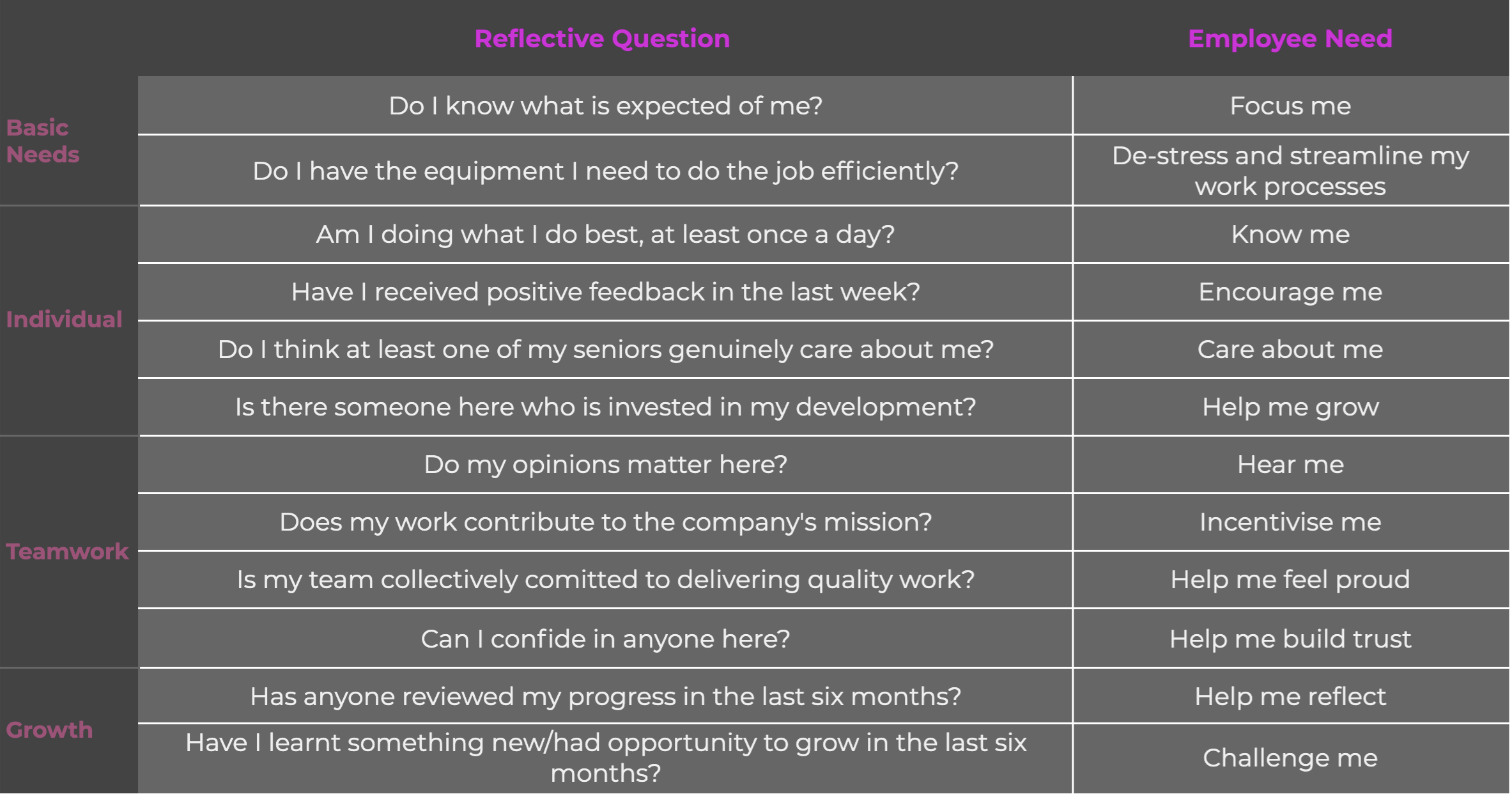It’s tough to define how many employees are working remotely, but one thing is certain: the numbers are still rising. According to Gartner, 88% of the organizations, worldwide, made it mandatory or encouraged their employees to work from home after COVID-19 was declared a pandemic.
Without regular face-to-face contact with managers and peers, team members can begin to lose their sense of belonging and passion for the team and the broader company.
In this article, we’ll share our ideas on how you can better manage team engagement while in a remote mode of work.
Why do we need team engagement?
An engaged employee is an inspired employee – those most engaged in their work will produce great ideas. Managers and leaders must work to ensure that the employee experience is a positive one. When employees feel that their working relationships are genuine and happy, this will create the ideal environment for generating innovative and creative work.

There is a range of employee engagement ideas that circle around in discussion for many HR departments. Evidently, the response of different team members is determined by the employee engagement strategy enacted. Curating a good employee experience will not just lead to increased team engagement but also increased employee performance. The significance of promoting engagement in the workplace is seen in its wider benefits for the team members and the organization as a whole.
Oftentimes, the steps to promote better team engagement take very little effort and coordination. It simply comes down to taking the time to determine how and when it suits team members to gather and run such exercises. For a small investment, you can expect big returns.
As team members remain distanced from each other, it is important to ensure that employees feel close to their colleagues. With the recognition of mental health as a priority in the workplace, there is a growing need to support remote working employees.
Beyond the strategic benefits of increased employee performance – the human and social responsibility of leaders requires that they do more than the bare minimum for their employee engagement strategy. Disengaged employees are at greater risk in terms of psychological safety. Furthermore, this can negatively impact the working relationships of others. A company culture that promotes a positive and collaborative employee experience will be productive for all.

How do you build team engagement?
In order to build a better-engaged workforce, it is up to managers and leaders to promote opportunities for social bonding. That being said, coordinating such occasions for socializing whilst living through a pandemic is proving to be difficult. Promoting engagement in the workplace is considerably easier when there are opportunities for spontaneous face-to-face interactions.
Employee surveys can be a useful tool in tackling the causes of disengaged employees. An employee survey measures employees against a variety of factors – these can be interpreted to determine the most effective solution for engaging employees. Managers and leaders must take it on themselves to ensure that employees feel good at work.
Prioritizing team engagement is one of the key drivers that will contribute to achieving company goals. Even if they can’t approach team members face-to-face, there is a need to promote team engagement.
When employees are highly engaged in their work, this contributes to high performance standards and better employee wellbeing. At its core, the purpose of any employee engagement strategy should be focused on these two outcomes. The employee experience constitutes the potential for employee performance. An employee that is truly inspired and engaged in their work is far more likely to complete work in an effective and productive manner.

5 ways to promote team engagement
Here we have our five suggestions for approaches that you can undertake to boost team engagement in a remote working environment. Each example provides an explanation for the approach and also indicates how this can benefit team members whilst also engaging employees with their work. Each of our suggestions are selected as they promote an approach to team socializing that doesn’t have to be entirely focused on work.
The spread of our suggestions offer something for everyone – from fitness nuts to those who’d much prefer a drink and a chat. Our list of ways to promote team engagement should be a source of inspiration that you can adapt for your own virtual office practices.
Virtual Happy Hour
Starting with a more obvious suggestion, a virtual happy hour is a great way to encourage socializing between team members. Setting up a relaxed environment for colleagues to discuss events outside of work can lead to better long-term employee engagement. All team members can engage in conversations with each other that aren’t solely focused on work.
The purpose of this call is to emulate the previously well-rehearsed employee experience of going for post-work drinks. Something many of us had been practicing prior to the beginning of the pandemic. There is absolutely no obligation to have a drink. This hour is simply designated to provide team members with an opportunity to reconnect and will act as a distraction from the potential stresses of work.
Reimagining the employee experience from a virtual setting will assist in preventing any feelings of isolation or other negative effects of living in a lockdown. Many teams enjoy a weekly session towards the end of their working week. The frequency can be changed depending on what works for your team.
Through establishing a happy hour, there is more potential for team members to develop more trusting working relationships. As employees can engage in a much less formal manner, the employee experience will shift and consequently, employees feel more relaxed around each other.
Dedicated Talk Space (Water Cooler)
As humans, we are innately social beings. It’s important to us to share moments with others, there are particular spaces and channels that make this considerably easier. A common place in an office space for this social interaction had been the water cooler. With the move to remote work, such random encounters have become near impossible to reproduce.
The employee experience has shifted and these informal moments have dwindled from the new normal. Previously the water cooler had acted as a space for a quick catch-up and a break from the pace of the working day. Recreating this phenomenon is important to promote good levels of employee engagement and performance.
Steps can be taken by the management team to rekindle these informal work moments. By encouraging employees to arrange their own water cooler moments, it opens up the possibility to help employees feel better about balancing work and socializing. Through the use of team chat apps, team members can check in with each other. It may even be during these sporadic virtual water cooler meetings that some employees come up with new great ideas to facilitate their work.
It is inefficient to expect your employees to approach their working day as 8 hours of pure focus. Promoting a more balanced approach where employees can break up their tasks will lead to a happier workforce. Happier employees have a greater potential for high performance during these slots dedicated to focusing on work.

Team Games
This is a slightly more active example from our employee engagement ideas, essentially why not try to arrange some team building games. Whether you decide that the management team should host a bi-weekly quiz or engage in the more traditional office ‘ice breaker’ games such as two truths and a lie. There are endless articles online that can provide you with further inspiration.
The purpose of these games is to facilitate increased employee engagement by promoting a sense of camaraderie between team members. Some individuals are more competitive and others more collaborative – this is where the fun begins. Through these games, you are enabling employees to go beyond their traditional working relationships and instead encouraging them to play.
Increased employee engagement in the workplace doesn’t solely come down to how well the management team promotes collaboration. People must be given alternate routes to establish social ties with other team members. With employees engaging in an informal manner it helps to prevent the potential for disengaged employees, particularly in a remote setting. After all, there’s no better way to improve employee engagement than having them form teams and collaborate to a not so important team objective.
Spread the Knowledge
Whilst many of our ideas shared here look to improve employee engagement through recreational or distracting activities, this idea could be exercised whilst you work. Team members can look to become more engaged in the workplace by spreading knowledge. This idea harps back to the ‘Ben Franklin effect’.
The ‘Ben Franklin effect’ refers to reciprocal liking and the psychology of attraction. In a nutshell, this effect infers that when an individual does something for someone, they are more likely to help them again if this individual gives something back. You can apply this to the workplace and look to develop a network for sharing knowledge. Employees can establish better working relationships if they are more invested in helping each other.
Spread the knowledge by promoting that employees routinely share any information that relates to innovations or news in your sphere of work. This could either be a groundbreaking discovery or a novel article on something extremely niche, it doesn’t really matter. The whole point is that it drives more conversation and engagement between employees.
Team Health Challenges
This trend has become increasingly popular since the outbreak of COVID-19 and it’s a great way to promote a greater sense of belonging and team engagement. Of course, it is also a great initiative for promoting a healthier workforce. A management team could set a target distance for the team to all collaborate towards – by running, cycling, walking, swimming, wheelchair pushing… you name it. It’s all contributing to clocking up the total team distance after all.
Encouraging your team to get active is a great way to inspire potentially disengaged employees. The challenges will set targets that aren’t related to work and it creates a great opportunity for more social conversations throughout the working day. Employees can motivate each other and develop a supportive network that sees everyone become healthier and more engaged.
Employee performance is important but as all of these great ideas demonstrate, there is much more to the employee experience than simply their output. Doing the bare minimum to support employees isn’t enough. This has been exacerbated by the pandemic. It is a lesson that must continue as we come out of it and move into the future of work.

The virtual team-building activities listed can help fill relationship gaps and will bring your remote employees closer. By introducing some of these activities, team engagement and employee satisfaction will rise in your organization. You can either opt for organizing any one activity or combine a few of them to create an engaging virtual team-building program. The choice is yours.
The overarching message from this article should remind us that we all work for each other. When all team members can cooperate and target a collective goal, only then can companies reach the high performance levels they desire. An employee engagement strategy is fundamental to realizing wider company objectives. These employee engagement ideas can act as the kickstarter to take your team to new heights.
Ready to 3x Your Teams' Performance?
Use the best performance management software to align goals, track progress, and boost employee engagement.





